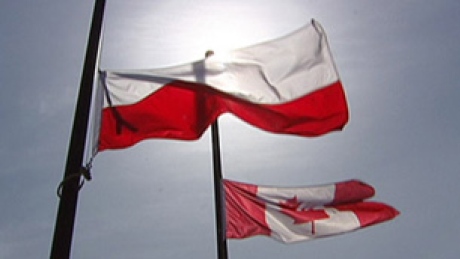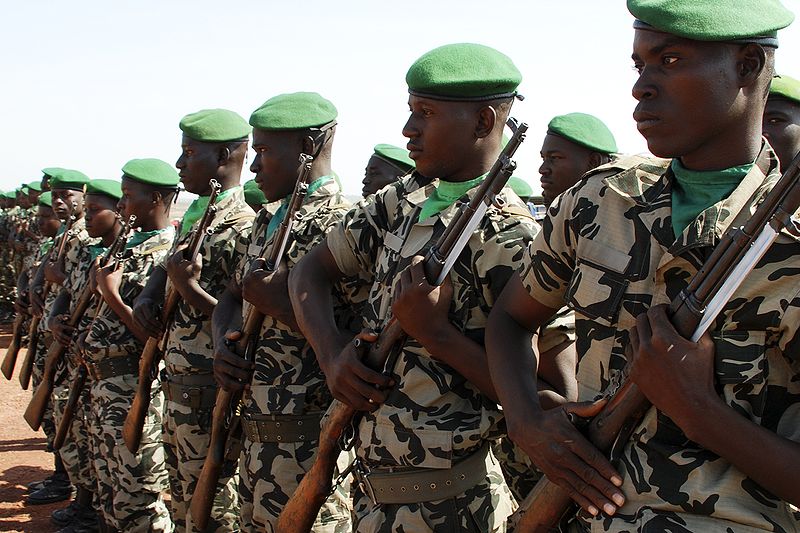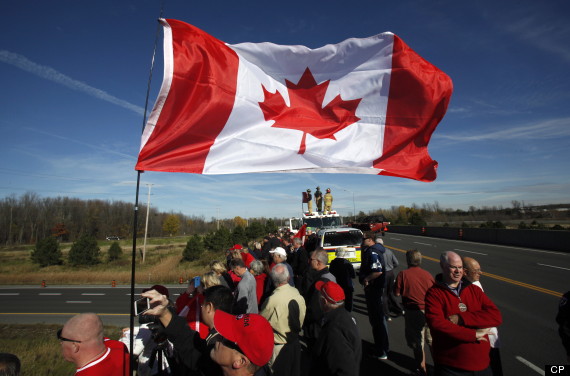On June 3, Prime Minister Harper embarked on his latest jaunt around Europe, beginning with a stop in Warsaw. Canada’s Eastern European allies have been on edge lately as the crisis in Ukraine worsens, resulting from Russia’s increasingly hostile and unpredictable behaviour. The situation in Ukraine has caused Poland in particular to be very wary, not only of regional stability but of its own security. Following the annexation of Crimea, foreign ministers from all 28 NATO states met in Brussels after Poland invoked Article 4 of the North Atlantic Treaty, which stipulates that any NATO member who feels its security or territorial integrity is threatened may request consultations with members of the Alliance. Responding to Poland’s nervousness, NATO has been steadfast in its support for increased security in Eastern Europe, and Canada has echoed NATO’s sentiments.

The visit to Poland served not only a symbolic purpose, but a practical one as well. Prime Minister Harper joined other world leaders in Warsaw to commemorate the 25th anniversary of Poland’s freedom from communist rule, but also took the opportunity to discuss Canada’s commitment to security in the region with his Polish counterpart Donald Tusk. Poland has been pressing NATO to bolster its presence in Eastern Europe in response to Russia’s actions in Ukraine, and Stephen Harper acceded to Prime Minister Tusk’s requests by pledging to send additional troops to Eastern Europe while also stating that Canada would consider further expanding its military presence in Eastern Europe.
While the recent events in Ukraine have sparked the Harper government’s renewed focus on Eastern Europe, Canada’s strong relationship with and commitment to Poland predates the current crisis. Canada strongly supported Poland’s post-communist economic reforms and has since engaged in extensive bilateral trade with the state, which has become Canada’s largest merchandising trading partner in Central and Eastern Europe. Since the end of the Cold War, Poland has become one of the EU’s most successful economies, growing at roughly 4% annually. As the state’s economy continues to expand, Canadian companies are sure to find investing in the Polish economy increasingly alluring and Canada will likely expand bilateral trade relations with Warsaw if the Polish economy continues to perform well.
The two states also share close ties when it comes to issues of defence. Canada was the first country to ratify Poland’s ascension to NATO in 1998, and Canadian forces have been actively involved in providing language and peacekeeping training to their Polish allies. As a result, Poland sees Canada as one of its closest NATO allies. Currently, as part of Canada’s contribution to NATO’s Eastern European defence, 50 Canadian troops are stationed in Poland to conduct training manoeuvres. If the Harper government agrees to take on a greater role for the Canadian forces in Eastern Europe in response to the crisis in Ukraine, it can be expected that there will be further engagement between Canadian and Polish forces.

Having amicable relations with Poland is desirable for Canada in a number of ways. First, it gives Ottawa a foothold in a region with which it has fewer historic ties, but which is rapidly becoming a more strategically important area. As NATO and the EU look to the East for new partners, Canada should have an established bilateral relationship with states in the region to complement the role it plays through multilateral organizations. After Russia and Ukraine, Poland is the third largest state in Eastern Europe both geographically and in terms of population and Poland has tremendous economic potential, which makes it an important partner for Canada to have in the region as collaboration between the two states would ensure a continued role for Ottawa in Eastern Europe.
Second, in view of the uncertainty over the future of Ukraine and the vulnerability of its neighbours, Canada’s relationship with Poland has become particularly important. With both nations expressing a like-minded iciness towards Russia and solidarity with Ukraine, any escalation of the conflict is likely to draw both Canada and Poland into any operations NATO may undertake in Eastern Europe, which would likely require greater military cooperation between Canada and Poland. As Canadian troops continue training in Poland and Ottawa considers taking on a greater role in Eastern European defence, Canada should maintain a close relationship with regional actors, particularly Poland, to develop an efficient and concerted military force capable of responding to any future conflict in the region.
The Ukrainian crisis has made Eastern Europe more geopolitically relevant than at any other point since the end of the Cold War and in response Ottawa has joined with NATO in emphatically supporting its Eastern European allies. Some critics might claim that Canada’s staunch support for Poland is merely rhetorical and that Ottawa is unlikely to back up its promises with real action. Others might assert that the Conservative government is using the crisis to gather domestic political support from the nearly one million Canadians of Polish descent that make up the electorate. However, Canada’s ties with Poland are not as superficial as these critics claim and Ottawa has a genuine interest in ensuring Poland remains prosperous and secure. As such, Canada will continue to voice its unwavering support for Poland and any threat to the state is likely to trigger further Canadian involvement in the region, and not just meager reassurances.




